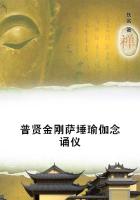I.Division of Philosophy.
Philosophy may be said to contain the principles of the rational cognition that concepts afford us of things (not merely, as with logic, the principles of the form of thought in general irrespective of the objects), and, thus interpreted, the course, usually adopted, of dividing it into theoretical and practical is perfectly sound.
But this makes imperative a specific distinction on the part of the concepts by which the principles of this rational cognition get their object assigned to them, for if the concepts are not distinct they fail to justify a division, which always presupposes that the principles belonging to the rational cognition of the several parts of the science in question are themselves mutually exclusive.
Now there are but two kinds of concepts, and these yield a corresponding number of distinct principles of the possibility of their objects.The concepts referred to are those of nature and that of *******.By the first of these, a theoretical cognition from a priori principles becomes possible.In respect of such cognition, however, the second, by its very concept, imports no more than a negative principle (that of ****** antithesis), while for the determination of the will, on the other hand, it establishes fundamental principles which enlarge the scope of its activity, and which on that account are called practical.Hence the division of philosophy falls properly into two parts, quite distinct in their principles-a theoretical, as philosophy of nature, and a practical, as philosophy of morals (for this is what the practical legislation of reason by the concept of ******* is called).Hitherto, however, in the application of these expressions to the division of the different principles, and with them to the division of philosophy, a gross misuse of the terms has prevailed; for what is practical according to concepts of nature bas been taken as identical with what is practical according to the concept of *******, with the result that a division has been made under these heads of theoretical and practical, by which, in effect, there has been no division at all (seeing that both parts might have similar principles).
The will-for this is what is said-is the faculty of desire and, as such, is just one of the many natural causes in the world, the one, namely, which acts by concepts; and whatever is represented as possible (or necessary) through the efficacy of will is called practically possible (or necessary): the intention being to distinguish its possibility (or necessity) from the physical possibility or necessity of an effect the causality of whose cause is not determined to its production by concepts (but rather, as with lifeless matter, by mechanism, and, as with the lower animals, by instinct).Now, the question in respect of the practical faculty:
whether, that is to say, the concept, by which the causality of the will gets its rule, is a concept of nature or of *******, is here left quite open.
The latter distinction, however, is essential.For, let the concept determining the causality be a concept of nature, and then the principles are technically-practical; but, let it be a concept of *******, and they are morally-practical.Now, in the division of a rational science the difference between objects that require different principles for their cognition is the difference on which everything turns.Hence technically-practical principles belong to theoretical philosophy (natural science), whereas those morally-practical alone form the second part, that is, practical philosophy (ethical science).
All technically-practical rules (i.e., those of art and skill generally, or even of prudence, as a skill in exercising an influence over men and their wills) must, so far as their principles rest upon concepts, be reckoned only as corollaries to theoretical philosophy.For they only touch the possibility of things according to concepts of nature, and this embraces, not alone the means discoverable in nature for the purpose, but even the will itself (as a faculty of desire, and consequently a natural faculty), so far as it is determinable on these rules by natural motives.Still these practical rules are not called laws (like physical laws), but only precepts.This is due to the fact that the will does not stand simply under the natural concept, but also under the concept of *******.In the latter connection its principles are called laws, and these principles, with the addition of what follows them, alone constitute the second at practical part of philosophy.














